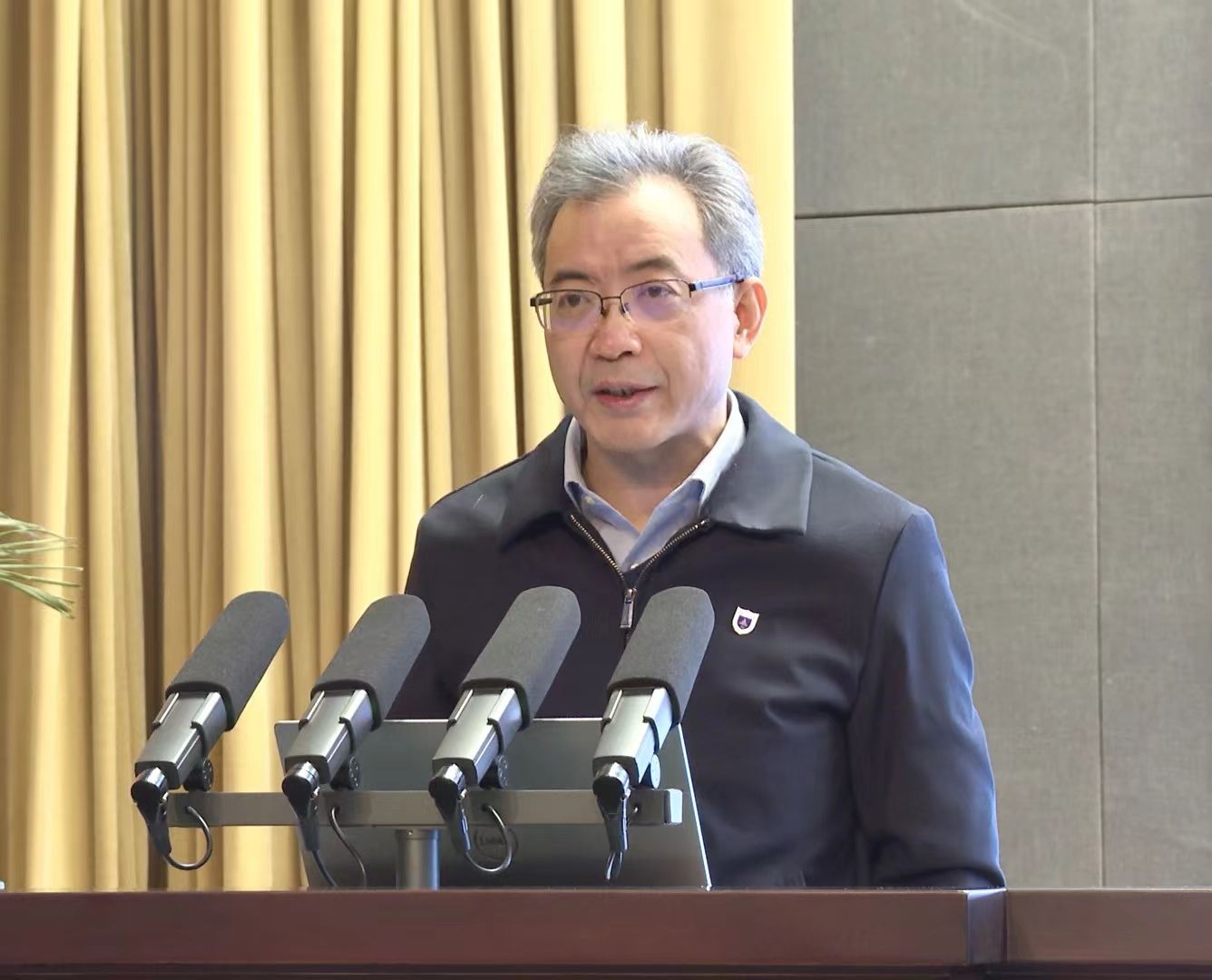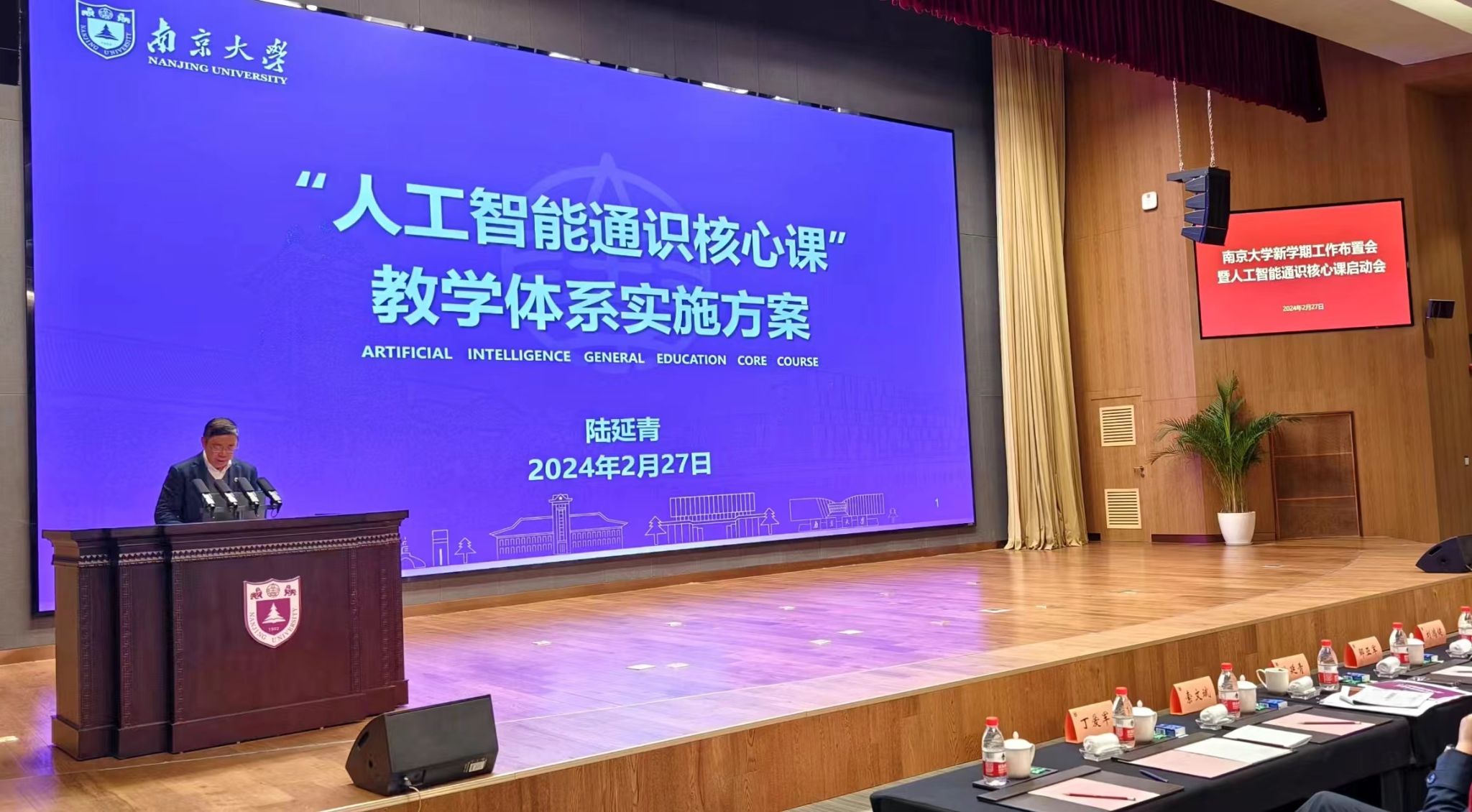On February 27, 2024, NJU released an overall plan to develop Artificial Intelligence General Education Core Courses (AIGECC) across the curriculum. The courses will be available for the incoming freshmen of Class 2028, starting in September 2024.
The AIGECC aims to provide all NJU students with AI learning opportunities, and empower them with the knowledge and skills needed to thrive in a world that is increasingly shaped by AI. It marks the first initiative of its kind among universities nationwide.
Tan Tieniu, a leading scientist in Computer Science and Secretary of the CPC Nanjing University Committee, underscored the significance of the university’s initiation of AIGECC. He emphasized that in today’s world, AI has already exerted far-reaching impacts on economic development, social progress, global governance, and various other aspects. It is crucial that future generations possess an accurate understanding of AI and its implications. Higher education must adapt to meet the needs of this rapidly changing world, and integrate theories and applications of AI across the curriculum and disciplines.

Tan Zhemin, President of Nanjing University, outlined that AIGECC will employ diverse teaching methods, including lectures, seminars, and fieldwork, to cultivate students’ skills in data analysis, computing and reasoning. AIGECC would address potential gaps in AI education, and enhance students’ competencies in AI regardless of their disciplines.

Lu Yanqing, Vice President of NJU, provided an overview of the courses’ background and curriculum.

The university is set to establish a comprehensive AIGECC curriculum system, structured as “1+X+Y”. The system will cover three dimensions, knowledge, abilities, and values and ethics.
The “1” signifies one mandatory general education core course in AI. The “X” component will focus on AI literacy, such as programming introduction, fundamental mathematics, data analysis, digital humanities, digital economy, and science and technology ethics. The “Y” component will emphasize the integration and practical application of AI wihin specific disciplines and fields.

The university will continuously explore practical approaches for the deep integration of artificial intelligence into education, promoting reform in teaching and learning models.
Additionally, the university will also collaborate with research institutions and industrial enterprises to jointly create artificial intelligence practice and application platforms.
Writer: Song Jiaxin
